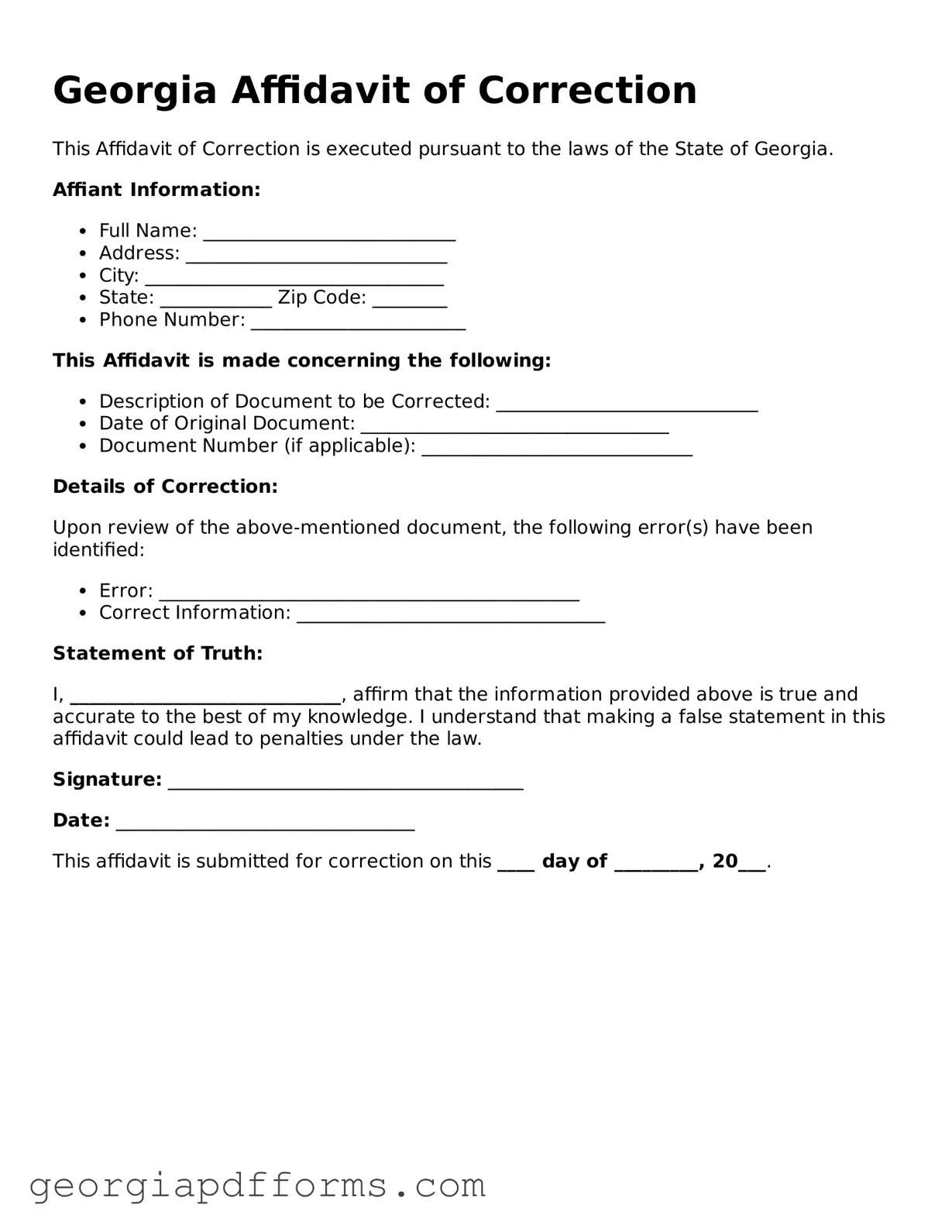What is the purpose of the Georgia Affidavit of Correction form?
The Georgia Affidavit of Correction form is used to rectify errors in public records, such as property deeds or other official documents. When a mistake occurs—whether it be a misspelled name, incorrect legal description, or any other clerical error—this affidavit allows individuals to formally correct the record. This ensures that the public record accurately reflects the true and intended information, which can be vital for legal clarity and property rights.
Who is eligible to file an Affidavit of Correction in Georgia?
Any individual who has a vested interest in the document containing the error may file an Affidavit of Correction. This typically includes property owners, their legal representatives, or any party who has been affected by the inaccuracies in the public record. It is important to note that the person filing the affidavit should have firsthand knowledge of the error to ensure that the correction is valid and justifiable.
How do I complete the Georgia Affidavit of Correction form?
To complete the form, you will need to provide specific information about the original document, including the date it was filed, the book and page number, and a detailed description of the error. Additionally, you must clearly state the correct information that should replace the erroneous details. It is crucial to sign the affidavit in the presence of a notary public to validate the document. This step adds an extra layer of credibility and ensures that the affidavit is legally binding.
Where do I submit the Affidavit of Correction once it is completed?
Once you have completed and notarized the Affidavit of Correction, it should be submitted to the appropriate county clerk’s office where the original document was recorded. Each county may have specific submission guidelines, so it is advisable to check with the local office for any additional requirements. After submission, the corrected affidavit will be recorded, and the public record will be updated accordingly.
Are there any fees associated with filing an Affidavit of Correction in Georgia?
Yes, there may be fees involved when filing an Affidavit of Correction. These fees can vary by county and may include a recording fee for the affidavit itself. It is advisable to contact the local county clerk’s office to inquire about the specific fees applicable to your situation. Being informed about these costs can help you prepare accordingly and avoid any unexpected expenses during the filing process.

